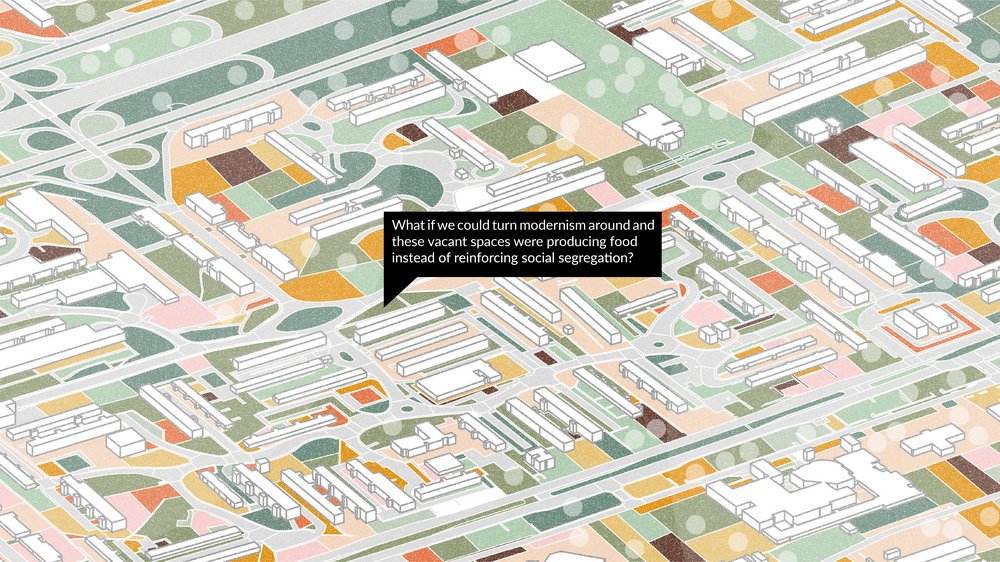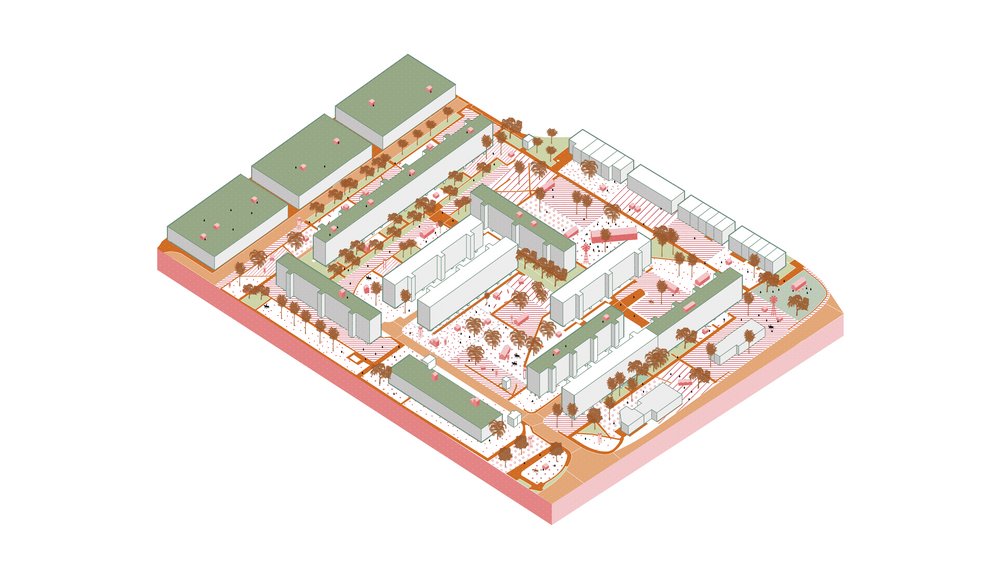Edible Modernism: Algorithm-based spatial exploration of Urban Agriculture in Brasília
ANERKENNUNG
Project information
submitted by
Luisa Correa de Oliveira
Supervising professorship
Professur Informatik in der Architektur (InfAr) und Institut für Experimentelle Architektur (bauhaus.ifex)
Advisors
Prof. Dr.-Ing. Sven Schneider, Dipl.-Ing. Philippe Schmidt, and M.Sc. Martin Dennemark.
Degree programme:
Integrated Urban Development and Design (Master of Science (M.Sc.))
Project description
Current global urbanization processes, including food production, consume more resources than the planet can accommodate. For instance, deforestation to arable land, water for irrigation, and CO2 emissions add up to a system that fosters land and wealth concentration, perpetuating social inequality patterns.
My master thesis is a research-based design exploration responding to these challenges through an Urban Agriculture lens, aiming to promote social-spatial inclusiveness trough a better spatial distribution for land access, integration with water and waste flows, and local food production.
Specifically, the thesis relies on literature review, case studies and analyses to support creating a framework, consisting of a set of spatial relations operationalized parametrically through maps and heatmaps. These simulations inform, in multiple scales and through different typologies, where urban agriculture elements would be ideally located to perform well, therefore fulfilling the strategy's goals, given their relation to everything else around them.
Conclusively, all these simulations bring an overview of a possible spatial configuration of institutionalized urban agriculture elements taking into account their integration in the existing urban fabric and the least environmental impact. Such knowledge is useful in future stakeholder interactions regarding urban food production and to bring awareness to the local debates of urban resilience and food justice.
Jurybegründung:
"Mit dem Ziel die Nahrungsmittelproduktion in die Stadt zurückzubringen werden Flächenpotentiale am Beispiel von Brasilia untersucht. Bei dieser Arbeit werden die Form der Darstellung und der praxisorientierte Ansatz der Vermittlung gewürdigt."


